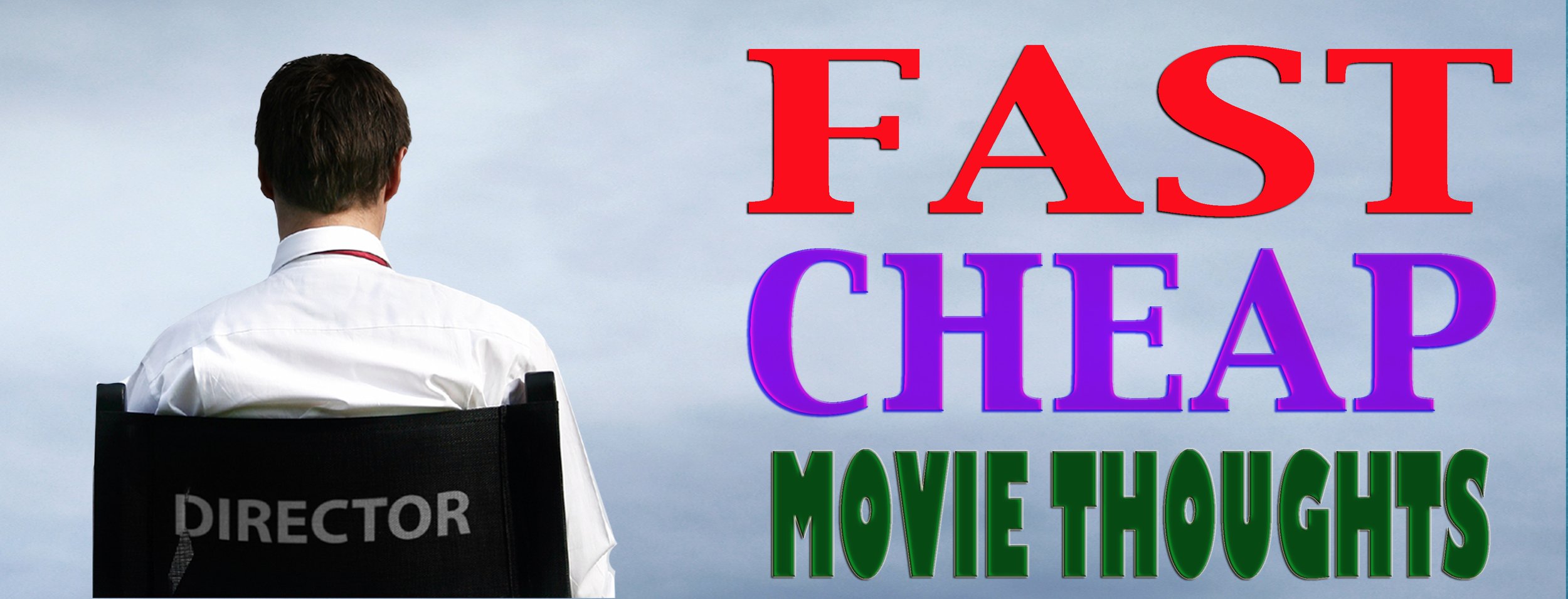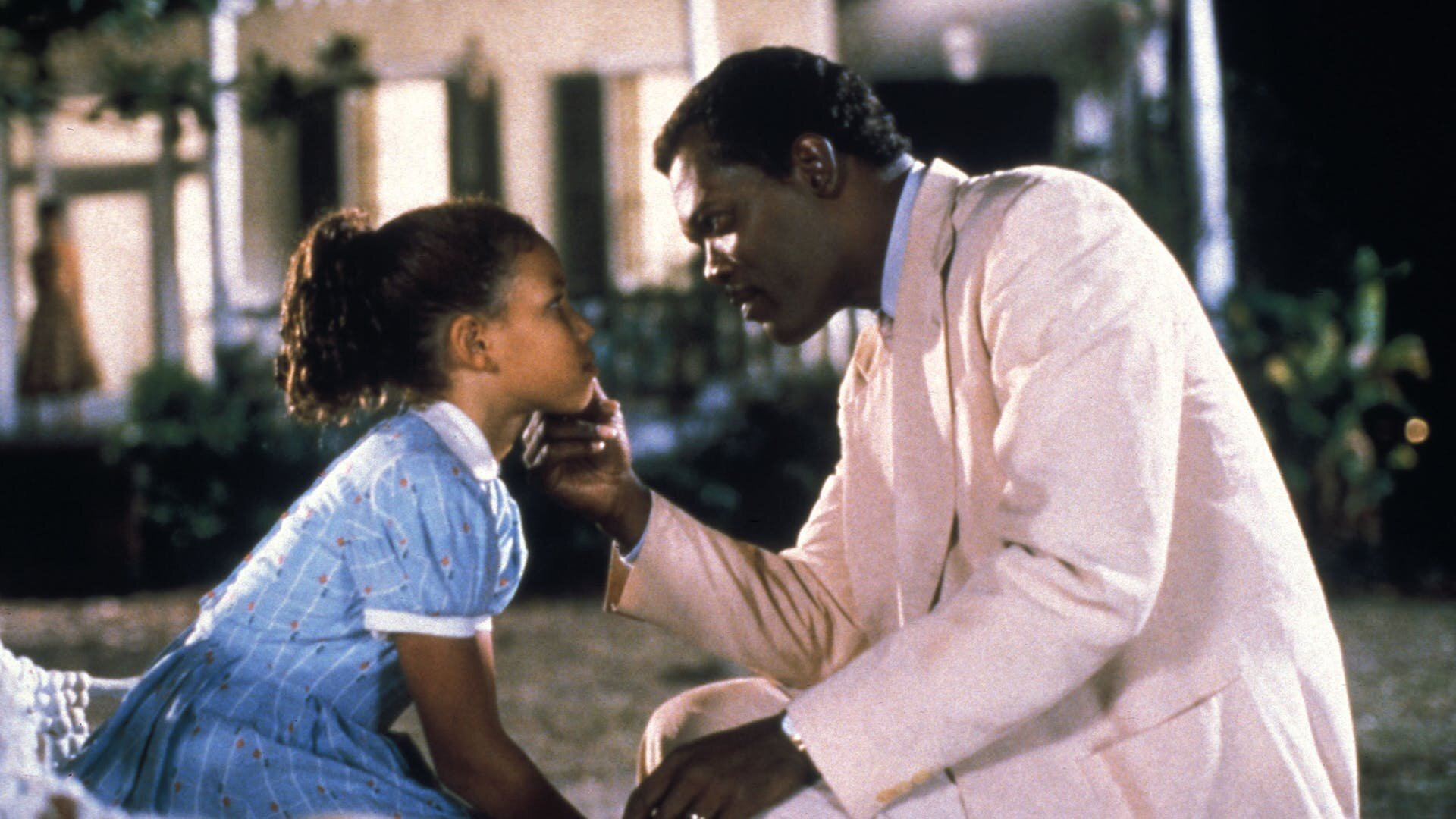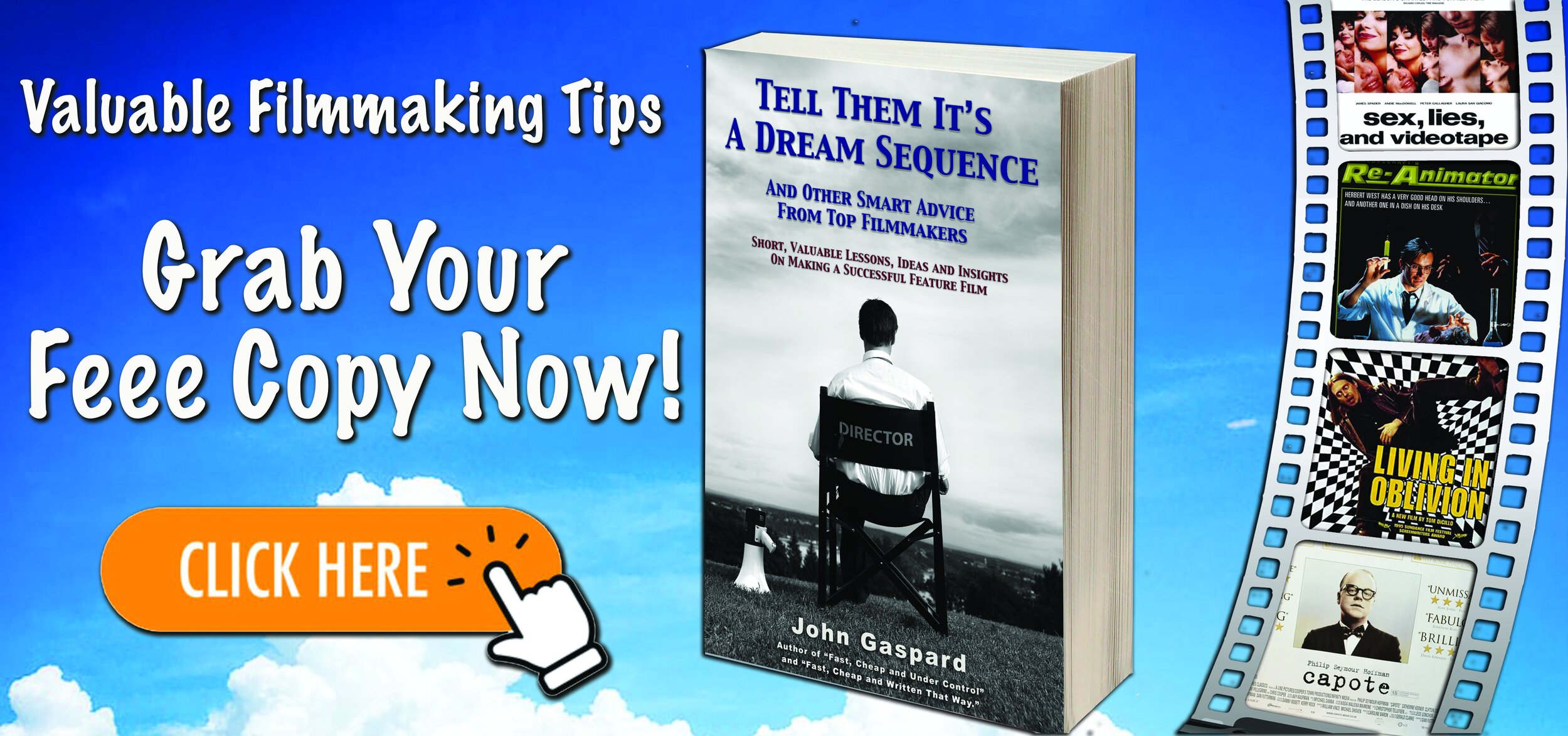As you watch this beautiful movie, it's occasionally hard to believe that Eve’s Bayou is a film from a first-time feature director working from her first solo screenplay. It’s an assured and ambitious and emotionally satisfying story of life in the South in the early sixties, following young Eve (Jurnee Smollett) during a life-defining summer.
Writer/Director Kasi Lemmons (best-known to filmgoers as Ardelia in The Silence of the Lambs) deftly mixes Southern gentility, voodoo and magic, and a touch of Rashômon-style story-telling to present the sometimes-comic, sometimes-tragic events of that summer from a child’s unique perspective.
What was going on in your life and your career before you came to write Eve's Bayou?
KASI LEMMONS: I had been an actor for a long time. I'd done a couple of plays with really good companies, Naked Angels and Steppenwolf, and then I went to film school. When I got out of film school, I had a short film that was festivaling around, called Fall from Grace. And then I did Silence of the Lambs and moved to Los Angeles.
What I really wanted to do was to write the perfect role for myself. To write the perfect part. If you could write a perfect part for yourself, what would it be? So I wrote the character of Mozelle for me to play when I got a little bit older.
Also it was very much an experiment in a certain type of language and a certain writing style. It was very ambitious. I knew what I wanted to do, but it was more of an experiment. And then when I was finished with it, I showed it to Vondie Curtis-Hall, who was my boyfriend at the time, and he said, "You've got to show this to somebody else." He was the person who said, "You can't put it in a drawer. You have to show it to somebody."
Where did the idea for the story come from?
KASI LEMMONS: I remember the first time I told any story from Eve's Bayou was at an audition. The casting director didn't want to see a scene from the show. He wanted us to talk. So I started spinning Eve's Bayou stories. I talked about my aunt who had gotten married five times and all of her husbands had died. That was true. The more fantastical parts of the story are true.
I wrote that story down as a short story and I wrote some other short stories. One was about two little kids, a brother and sister, who go and look in their grandmother's room. It talks about all of her medicines and the way in which her room was very evocative. And then another was about Eve and Jean Paul Batiste and how a bayou came to be named after this slave who saved her master's life with voodoo and witch-doctoring. So I had all these stories, but they weren't really connected. There was some connection in my mind, but I hadn't found it yet.
Then I invented the character of Louis Batiste for the stories to revolve around. Way before I wrote anything down I could tell you the entire story of Eve's Bayou, the entire thing complete with flashes of lightning. I could tell you the whole movie. I had it all in my head.
How long did it take you to get it out of your head and onto paper?
KASI LEMMONS: From the time I could tell it all the way through, maybe a year.
I was in therapy at the time and I was very conflicted about what to do with my life, how to approach the next step, the next phase of my life. My therapist said, "You really need to take this pilot season off, don't audition for anything and write that story that you keep telling me about." So basically, my therapist told me to stay home for a few months and write it down and that's what I did.
Were you thinking about budget at all while you wrote?
KASI LEMMONS: I wrote it as a literary experiment. So, I wasn't thinking about anything other than wanting to get this story down on paper. As a matter of fact, when I first started writing it, I thought it might be a book. And then I ended up writing it as a screenplay and I had the idea of playing the role of Mozelle. But I wasn't really sure if it was going to turn into a book or a screenplay or what was going to happen with it. I just let it come out. I wasn't thinking about budget and I wasn't thinking about directing it at all.
Once you had a draft done, how did you get feedback?
KASI LEMMONS: I have a select group of people who read every script. There are about five of them. They are the most critical people I know. I process their comments carefully. They usually don't agree on many things, so I look for the things they all agree on. If five people tell you something is bothering them, then maybe you need to look at that. I take what somebody says and try to see what resonates with me or if they say something that I've been thinking already.
What was it that made you decide to direct it?
KASI LEMMONS: I took a bunch of meetings that were a little bit frightening to me. I started to realize that I'd written a very delicate piece of material that could be misinterpreted very easily. In fact, it was just as easy to misinterpret it as it was to interpret it the way I intended. I took some scary meetings where I thought, "Oh God, I'd rather keep it in the drawer than let people interpret it this way."
My producer kept saying, "What's a sexy idea of a director? Who's sexy?" And I was thinking, "Who's sexy? Who's sexy?" Literally I woke up on my birthday and it was an epiphany. I was like, "You know what? I'm going to direct it."
After that moment I never vacillated. I went to the producer and said, "I went to film school. My short film did really well and I've decided I'm going to direct this." He almost fell off his chair. But he was very supportive. The first thing he said when he recovered from shock was that he wanted to produce a short film for me to see what I could do. Something with a 35mm camera, real crew, the whole thing. And that's what he did. My agent put up half the money and he put up the other half. It was really amazing.
Did you change the script at all once you locked in on a budget?
KASI LEMMONS: At first the Batiste house was reminiscent of my grandmother's house. It had an elevator that went up to the third floor. And the little marketplace/fair where they meet Elzora, the voodoo priestess, was a huge, traveling fair that had a Ferris wheel. I took that out. I took a lot out of it and made it much, much simpler.
Was there anything that you hated to lose?
KASI LEMMONS: There was nothing that I hated to lose until the edit and then I lost something I hated to lose. It was extremely painful. It was a character named Tomy.
A whole character got excised?
KASI LEMMONS: A whole character. He was a member of the family. It was actually a lot of work to cut him out.
He was a great-uncle who lived in the house. I never explain exactly what's wrong with him, but he's mute. He was modeled after my great-uncle who had cerebral palsy. In the director's cut, he's in a wheelchair and he's actually sitting in the room when what happens between Louis and Cisely happens. So he knows the truth but he can't speak. He was the mute witness and to me it was very beautiful that there was a mute witness in Eve's Bayou. Even though Louis and Cisely remembered it differently, there was actually somebody who knew the truth.
At the end of the movie, when you see the little girls and they do their scene and they're standing on the bayou, I cut to him on the porch in his wheelchair and he knows what happened. But he can't say.
You did a masterful job of cutting him out.
KASI LEMMONS: He's in the movie, but I would have to freeze frame and point him out to you. There are places where we didn't remove him but you just don't see it, your eye doesn't go there.
What drove the decision to cut this fairly major character out of the movie?
KASI LEMMONS: What drove it was notes from the producer, Mark Amin, who was running Trimark. He hated that character. He hated it from the beginning. It was one of those elephants in the room that doesn't go away. In Eve's Bayou the people are very conspicuously pretty and then there was this older, disfigured person. To me it was beautiful that there was this older, disfigured person who lived in the house, it wasn't just the beautiful people. It was a relative in the house and I thought it was very black and very Southern that there would be some relative that you had to take care of.
He really didn't like the character and we went back and forth over it. Finally I lost him and it was very painful. My crew made t-shirts with an empty wheelchair that read, "Where's Tomy?" Tomy was my real great-uncle's name so it was a real big deal that we lost that character. But it was something that I had to do and honestly, I'm pretty sure I like the version without Tomy better. It took me a while to come to that point of view. I like my "director's cut" an awful lot, too. But probably the version without Tomy is my favorite.
Once you decided to direct it, did you ever consider also acting in it?
KASI LEMMONS: No. I find directing to be a very, very voyeuristic art form. Almost a perversion. You're really watching other people's intimate moments and trying to get those moments out of them. But I don't think there was ever a question of me wanting to be in it once I decided to direct it.
What was the benefit of your acting background when it came to writing the movie?
KASI LEMMONS: I think the characters are always talking to me. But I think writers are like that whether they're actors or not. Being an actor definitely helped me to hear the characters.
What was the benefit of your acting background when it came to directing the movie?
KASI LEMMONS: I didn't really think that much about it until I saw in the Electronic Press Kit that almost all of the actors said I was a good director because I was an actor. But I hadn't really thought about it until then.
I don't scream direction across the set. I'll go up and talk to an actor intimately. I would treat them the way I would like to be treated, in that it's always, always, always a private conversation so nobody can listen to me direct actors.
Did you have much rehearsal time?
KASI LEMMONS: I did. I had about two weeks. I used it mostly with the little girls, not exclusively but almost exclusively. I thought that these two little girls have to carry a movie and it's a very complicated movie. Some of it I wondered, was it over their heads? Jurnee Smollett was a very contemporary little girl, so I had to take her back into the 1960s. How you stood and what I thought her body language would be and who I thought Eve was, where the boundaries between Eve and Jurnee were. She's so facile, within three days she was Eve.
Did you do any tweaking of the script in rehearsal?
KASI LEMMONS: No. I think I had gone through about eleven drafts by then, so I was pretty locked on the one that I liked.
Was it much of a struggle for you to get that tone you felt in the script up onto the screen?
KASI LEMMONS: Not really, once the actors nailed the language. The language to me, and I really haven't felt this way with other things that I've written, but the language in Eve's Bayou was like Shakespeare. That's because it started out as a language experiment, so I made them say it word for word. And the words were really important to me. So they had to say it as it was written. Once they nailed the language, that really helped them fall into the tone.
How tough was it for the actors to get that and make those speeches work? I'm thinking in particular of Mozelle's "Life is filled with good-byes, Eve" speech.
KASI LEMMONS: That's my favorite speech. Debbi Morgan's such a wonderful actress. She came in and her audition was wonderful. Wonderful. She really got it. And once she got the words exactly, like, "Well, you musta been thinking something right before you was thinking that, what led you to that particular thought?" Once you could nail the words and you're not improvising on the words, you're saying those exact words, the words help with the character. But she was so wonderful, she was wonderful from the beginning and she understood Mozelle. There was a part of her that was Mozelle.
Did you learn anything writing Eve's Bayou that you're still using today?
KASI LEMMONS: You know, there's an innocence when you write your first script. You don't know what the rules are. It's almost something that's really hard to reclaim. So that's what I'm always trying to get back to, that innocence, to try and be that pure. I don't know that I can ever do it again, but to try and remember to be that unleashed in a way.
What's the best advice you've ever received about writing?
KASI LEMMONS: I'm not sure who gave me this advice, but it's understanding that people usually don't say exactly what's on their mind. There's nothing more tiresome than a script where people say exactly what's on their mind all the time. It's just not the way people talk.
As an actor, you need subtext and intention. You know what the character wants from each scene and you think of them as if they were real people talking in your ear.
What was the best part of your experience on Eve's Bayou?
KASI LEMMONS: The collaborating. I love collaborating. I like writing, too, but writing's really lonely. You're in a room and you're by yourself and your friends are all going out to lunch and you are stuck with your computer. Directing is a collaborative art.
One of my favorite things is hiring brilliant people to work around you. And hopefully what you've written has inspired them to want to come work with you. It's like you are plugged into their genius. You're not just relying on yourself. It's not lonely; as a matter of fact, there's a feeling of security in that you've put together a team and they each know how to do their job and you can't live without them. I love collaborating. It's my favorite thing.
Dying to make a feature? Learn from the pros!
"We never put out an actual textbook for the Corman School of Filmmaking, but if we did, it would be Fast, Cheap and Under Control."
Roger Corman, Producer
★★★★★
It’s like taking a Master Class in moviemaking…all in one book!
Jonathan Demme: The value of cameos
John Sayles: Writing to your resources
Peter Bogdanovich: Long, continuous takes
John Cassavetes: Re-Shoots
Steven Soderbergh: Rehearsals
George Romero: Casting
Kevin Smith: Skipping film school
Jon Favreau: Creating an emotional connection
Richard Linklater: Poverty breeds creativity
David Lynch: Kill your darlings
Ron Howard: Pre-production planning
John Carpenter: Going low-tech
Robert Rodriguez: Sound thinking
And more!
Write Your Screenplay with the Help of Top Screenwriters!
It’s like taking a Master Class in screenwriting … all in one book!
Discover the pitfalls of writing to fit a budget from screenwriters who have successfully navigated these waters already. Learn from their mistakes and improve your script with their expert advice.
"I wish I'd read this book before I made Re-Animator."
Stuart Gordon, Director, Re-Animator, Castle Freak, From Beyond
John Gaspard has directed half a dozen low-budget features, as well as written for TV, movies, novels and the stage.
The book covers (among other topics):
Academy-Award Winner Dan Futterman (“Capote”) on writing real stories
Tom DiCillio (“Living In Oblivion”) on turning a short into a feature
Kasi Lemmons (“Eve’s Bayou”) on writing for a different time period
George Romero (“Martin”) on writing horror on a budget
Rebecca Miller (“Personal Velocity”) on adapting short stories
Stuart Gordon (“Re-Animator”) on adaptations
Academy-Award Nominee Whit Stillman (“Metropolitan”) on cheap ways to make it look expensive
Miranda July (“Me and You and Everyone We Know”) on making your writing spontaneous
Alex Cox (“Repo Man”) on scaling the script to meet a budget
Joan Micklin Silver (“Hester Street”) on writing history on a budget
Bob Clark (“Children Shouldn’t Play with Dead Things”) on mixing humor and horror
Amy Holden Jones (“Love Letters”) on writing romance on a budget
Henry Jaglom (“Venice/Venice”) on mixing improvisation with scripting
L.M. Kit Carson (“Paris, Texas”) on re-writing while shooting
Academy-Award Winner Kenneth Lonergan (“You Can Count on Me”) on script editing
Roger Nygard (“Suckers”) on mixing genres
This is the book for anyone who’s serious about writing a screenplay that can get produced!














